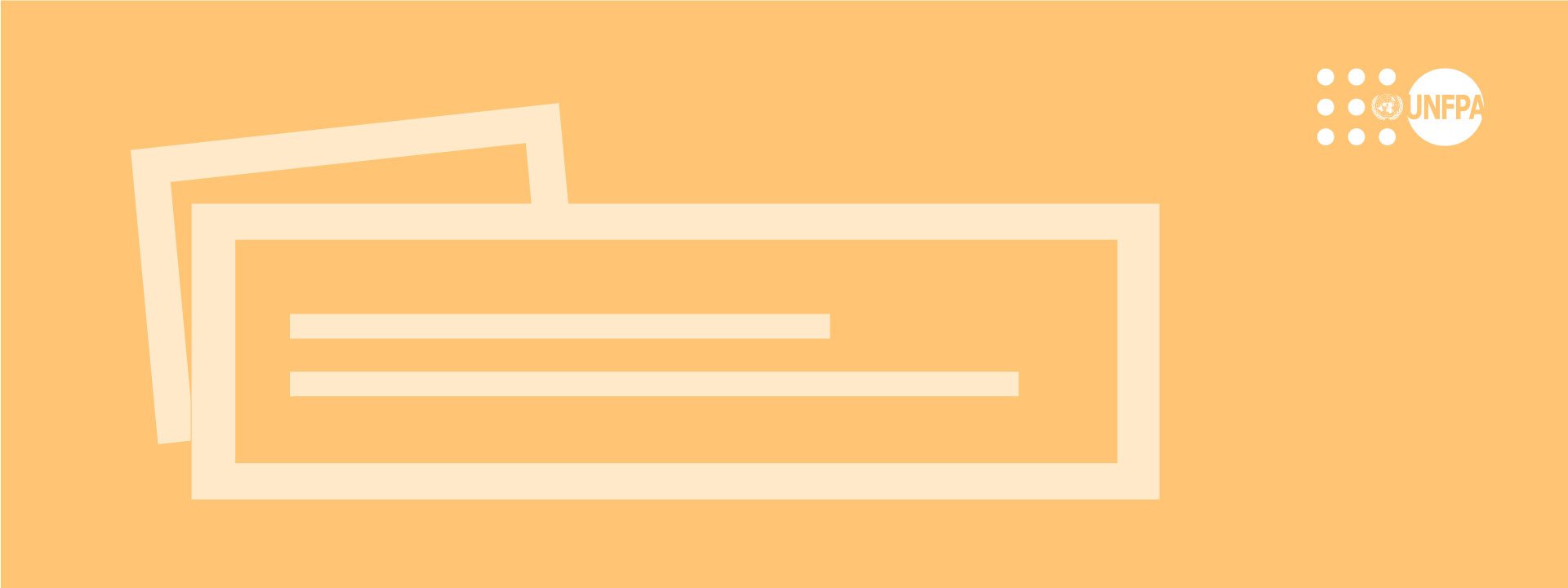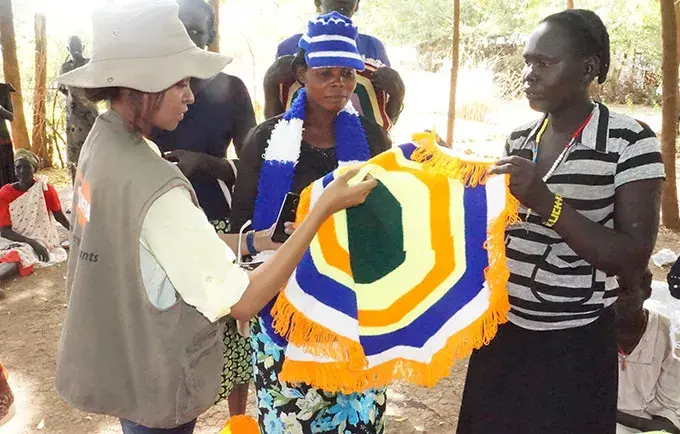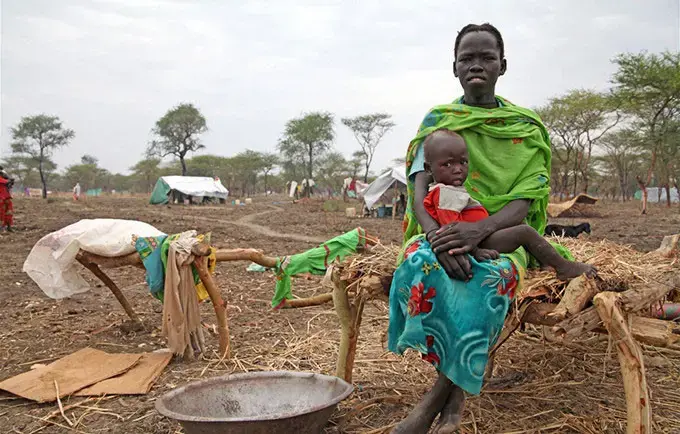Conflicts, climatic shocks, disease, and high maternal mortality have severely affected the people of South Sudan. The South Sudan Humanitarian Needs Overview (HNO) estimates that 9.4 million people will be in urgent need of humanitarian assistance in South Sudan in 2023. Of these, 24% are women, 54% are children and 15% are people with disabilities. According to HNO, out of the 2.8 million people who need protection assistance related to gender-based violence (GBV), 33% are in a serious situation and 22% are at the extreme level while 14% are in catastrophic levels of severity.
Sara Beysolow Nyanti, the United Nations Humanitarian Coordinator, said in November 2022 that "something has to change in South Sudan" as the number of people in need continues to rise each year and resources continue to dwindle.
UNFPA GBV Prevention Interventions
As GBV is rooted in harmful social norms in South Sudan and as the humanitarian crisis exacerbates the level, impact, and consequences of GBV, UNFPA works with men, women, boys and girls to transform harmful social and gender norms and to foster positive values and attitudes, including respect for human rights and gender equality, so that they act as agents of change in their communities.
UNFPA's partnership with community action groups, champions of change and other influential leaders has increased the relevance and sustainability of GBV prevention and response efforts in South Sudan. Similarly, UNFPA's longstanding close collaboration with national and state line ministries on GBV and gender equality has created greater opportunity to provide a comprehensive and sustainable multisectoral response to GBV and scale up national GBV prevention efforts.
UNFPA GBV Response Interventions
UNFPA facilitates access for women, girls, men, and boys to integrated, quality and survivor centered GBV response services, including referral support. To this end, UNFPA supports the establishment and management of women and girl-friendly spaces, one-stop centers, and safe houses where vulnerable women, girls, men, and boys can receive integrated multisectoral GBV response services.
In line with the minimum initial service package, UNFPA-supported health facilities provide holistic and integrated clinical management of rape and domestic violence services to survivors of rape and sexual violence, including psychosocial support from first line, an emergency medical examination and care, mental health assessment and referral to more specialized GBV services, including case management. UNFPA provides health facilities and one-stop centers with post-rape treatment medical supplies that reduce the risk of HIV infections, unwanted pregnancies, and other sexually transmitted infections. Similarly, UNFPA, as the core pipeline manager of the Dignity Kits, procures and distributes Dignity Kits to vulnerable women and girls to promote their safety and dignity and to ensure that women and girls can manage their periods safely and with dignity.
As the GBV Area of Responsibility (AoR) coordination lead, UNFPA provides systematic leadership on GBV in strategic decision-making forums at all levels by coordinating with a wide range of partners, including donors, HCT, Inter-Cluster Coordination Groups (ICCGs), UNCT, and government counterparts, to ensure that GBV services are recognized as vital and prioritized in funding decisions.
Reproductive Health in Emergencies
UNFPA works with the national and state ministry of health to address the urgent reproductive health needs of internally displaced people and poor host communities affected by a crisis. Equally, UNFPA works in close collaboration with humanitarian clusters to leverage limited resources to establish the services that vulnerable women, men, boys, and girls want and need. For a culturally sensitive response, UNFPA invites women, men, boys, and girls to participate in the design, implementation, and monitoring of its reproductive health program in emergencies.
UNFPA co-leads reproductive health (RH) working with the ministry of health at national and state levels. Effective reproductive health coordination can accelerate comprehensive service delivery.
Protection from Sexual Exploitation and Abuse
UNFPA contributes greatly to improving protection from sexual exploitation and gender equality programming by including PSEA survivors in GBV referral pathways to create sustainable structures of care and support. Furthermore, UNFPA increases access to victim assistance and multi-sectoral response to GBV, leveraging increased collaboration among GBV actors, particularly case management and PSEA networks.
UNFPA's commitment to quality GBV case management in humanitarian responses prioritizes victim assistance in PSEA activities.





